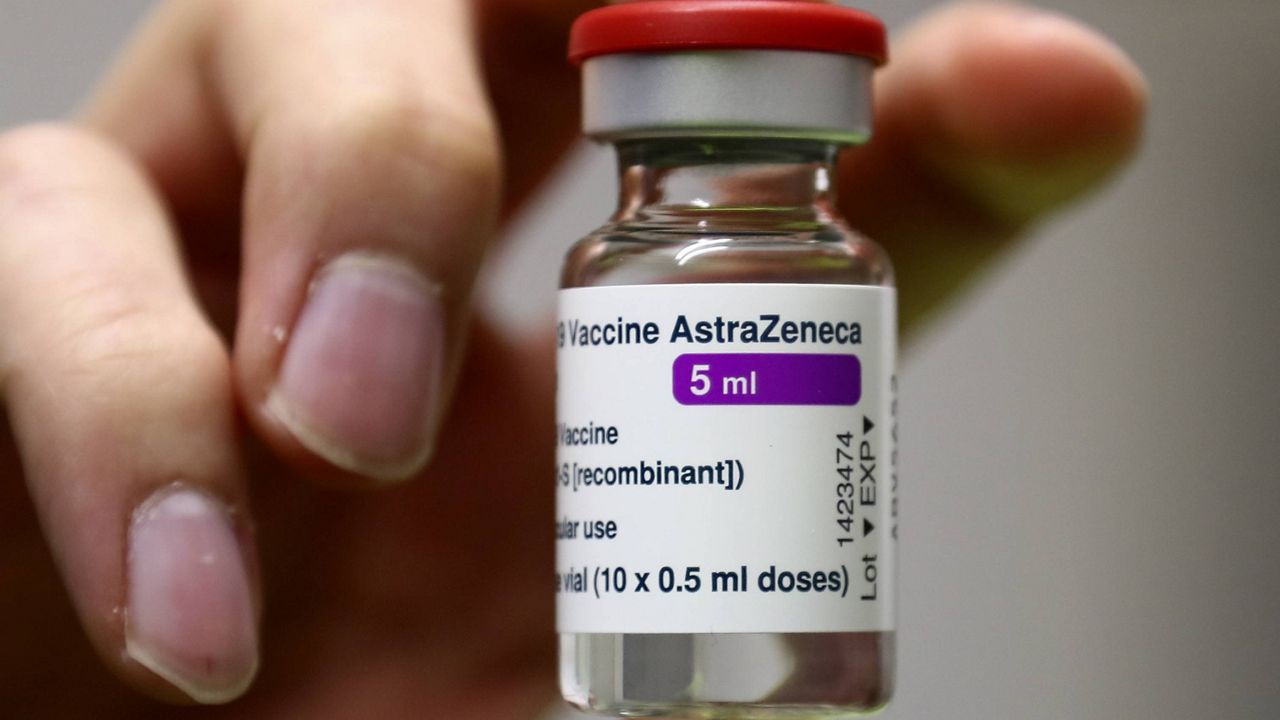WASHINGTON — Results from a U.S. trial of AstraZeneca’s COVID-19 vaccine may have included “outdated information” and that could mean the company provided an incomplete view of efficacy data, American federal health officials said early Tuesday.
What You Need To Know
- Results from a U.S. trial of AstraZeneca’s COVID-19 vaccine may have included “outdated information," American federal health officials said early Tuesday
- The drug company acknowledged in a news release Tuesday that the numbers it cited were from an interim analysis with a cut-off date of Feb. 17
- AstraZeneca said a preliminary review of the primary analysis showed results that were consistent with the interim analysis
- Dr. Anthony Fauci, director of the NIAID and President Joe Biden's chief medical adviser, said AstraZeneca’s vaccine “is likely a very good vaccine”
The drug company acknowledged in a news release Tuesday that the numbers it cited were from an interim analysis with a cut-off date of Feb. 17. AstraZeneca said a preliminary review of the primary analysis showed results that were consistent with the interim analysis.
“We will immediately engage with the independent data safety monitoring board (DSMB) to share our primary analysis with the most up to date efficacy data,” AstraZeneca said in a statement. “We intend to issue results of the primary analysis within 48 hours.”
AstraZeneca reported Monday that its COVID-19 vaccine provided strong protection among adults of all ages in a long-anticipated U.S. study, a finding that some experts hoped would help rebuild public confidence in the shot around the world and move it a step closer to clearance in the U.S.
In the study of more than 30,000 people, the company reported that the vaccine was found to be 79% effective at preventing symptomatic cases of COVID-19 — including in older adults. There were no severe illnesses or hospitalizations among vaccinated volunteers, compared with five such cases in participants who received dummy shots — a small number, but consistent with findings from Britain and other countries that the vaccine protects against the worst of the disease.
AstraZeneca also said the study’s independent safety monitors found no serious side effects, including no increased risk of rare blood clots like those identified in Europe, a scare that led numerous countries to briefly suspend vaccinations last week.
But just hours after those encouraging results were reported, the U.S. National Institute of Allergy and Infectious Diseases issued an unusual statement.
The agency said the Data and Safety Monitoring Board “expressed concern that AstraZeneca may have included outdated information from that trial, which may have provided an incomplete view of the efficacy data.”
“We urge the company to work with the DSMB to review the efficacy data and ensure the most accurate, up-to-date efficacy data be made public as quickly as possible,” the statement added.
In an appearance on ABC’s “Good Morning America” on Tuesday, Dr. Anthony Fauci, director of the NIAID and President Joe Biden's chief medical adviser, said AstraZeneca’s vaccine “is likely a very good vaccine.”
“If you look at it, the data really are quite good, but when they put it into the press release it wasn’t completely accurate,” he said.
Fauci called the public dispute over AstraZeneca’s data was “unfortunate” and an “unforced error” that could only heighten concerns among those who are already reluctant to get vaccinated.
“At the end of the day ... all of this is going to be decided by the FDA,” Fauci said. “They will independently go over every bit of data themselves and not rely on any interpretation from anyone including the company."
AstraZeneca aims to file an application with the Food and Drug Administration in the coming weeks, and the government’s outside advisers will then publicly debate the evidence.
Authorization and guidelines for use of the vaccine in the United States will be determined by the FDA and Centers for Disease Control and Prevention after thorough review of the data by independent advisory committees.
This article was updated to include comments from Dr. Anthony Fauci and AstraZeneca's response.



